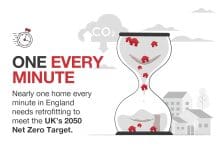Professor Adam Boddison OBE, chief executive of the Association for Project Management (APM) looks at the key trends in project management in 2025
As the world grows more interconnected and complex, project management is emerging as a vital discipline, driving progress across industries.
From leveraging cutting-edge technologies to addressing global challenges like sustainability, project professionals play a critical role in turning ambitious ideas into reality.
In collaboration with our expert teams, let’s explore the key trends and priorities defining the profession in 2025.
The AI revolution: Project management in the age of automation
Will project managers be replaced by AI? The short answer is no.
However, AI is reshaping the role of project managers by automating repetitive tasks like scheduling, data collection and reporting.
And while AI excels in decision-making support and risk forecasting, it cannot replicate human elements such as empathy, motivation and conflict resolution.
Our recent survey, conducted with Censuswide, revealed that seven in 10 project managers have integrated AI into their workflows, with an equal proportion noting improved project outcomes. Adoption is particularly strong in manufacturing (78%), financial services (77%) and aerospace and defence (75%).
AI-driven tools such as predictive analytics and natural language processing are empowering project managers to focus on strategic decision-making.
But while concerns about job displacement persist, the consensus is clear: AI will complement, not replace, the project professional’s role.
Hybrid work: Transforming team dynamics and leadership
The transition to hybrid work has significantly transformed project management, presenting both challenges and opportunities. Balancing the dynamics of remote and on-site teams requires strong digital communication and leadership skills, alongside strategies that foster
collaboration and productivity.
Despite the recent wave of “return to the office” mandates, APM research highlights the continued prevalence of hybrid working among project professionals.
According to our findings, 31% of project professionals report that their organisations offer hybrid working arrangements, while 20% do not foresee a widespread return to traditional office-based models within their sector.
To thrive in hybrid environments, project teams must adopt robust practices such as effective use of digital tools, regular check-ins and inclusive decision-making.
Moreover, sustainability and diversity initiatives are becoming integral to organisational strategies, further shaping the project management landscape.
For project managers, adapting to this evolving environment is essential to drive success in 2025 and beyond.
Net zero ambitions: Driving sustainability in every project
Sustainability is no longer optional but a core consideration in project management. With governments and businesses worldwide committing to net zero targets, project professionals are tasked with integrating sustainability into every phase of the project lifecycle.
Our research constantly highlights the growing importance of collaboration between public and private sectors to achieve net zero goals. Practical guidelines and tools are being developed to help project managers embed sustainability into planning and execution.
Examples from industries such as construction and energy demonstrate how sustainable practices can deliver long-term benefits while meeting regulatory requirements.
Projects prioritising sustainability are not just meeting environmental goals but also fostering innovation, enhancing stakeholder trust and contributing to organisational resilience.
As the demand for greener solutions grows, project managers must lead the way in driving sustainable change.
Bridging the skills gap: Building tomorrow’s project leaders
Addressing the skills gap is critical for the future of project management, with seven in 10 organisations running project management apprenticeship programmes to tackle this challenge.
Apprenticeships provide a practical route for upskilling, with 96% of respondents finding them effective in enhancing team capabilities.
Beyond apprenticeships, project professionals must embrace continuous development through certifications and qualifications. APM offers various pathways, including chartership, to equip professionals with the skills needed to navigate an increasingly complex environment.
Over 25,000 APM qualifications were taken last year, demonstrating their importance in helping project professionals remain relevant at every stage of their careers in projects.
As industries evolve, investment in training and education remains pivotal to addressing the talent pipeline and ensuring the profession’s resilience.
Agile evolution: adapting to change with flexibility
The adoption of agile methodologies continues to rise, offering a flexible approach to managing projects in uncertain times.
Agile principles focus on iterative progress, collaboration and responsiveness to change, making them particularly valuable in today’s fast-paced environments.
Agile methods are being integrated into traditional project management frameworks, allowing organisations to combine the best of both worlds. This hybrid approach enables teams to maintain structure while remaining adaptable.
For industries facing rapid market changes, agile project management is proving to be a game-changer, ensuring projects remain on track while delivering value to stakeholders.
Looking ahead at project management in 2025
From AI to skills development, the trends shaping project management in 2025 reflect a profession at the forefront of innovation and adaptation.
APM remains committed to supporting project professionals as they navigate these changes, equipping them with the tools and knowledge to thrive.
By embracing these priorities, the project profession can continue to drive meaningful impact. Now is the time for project managers to lead with purpose, ensuring a sustainable and successful future.














